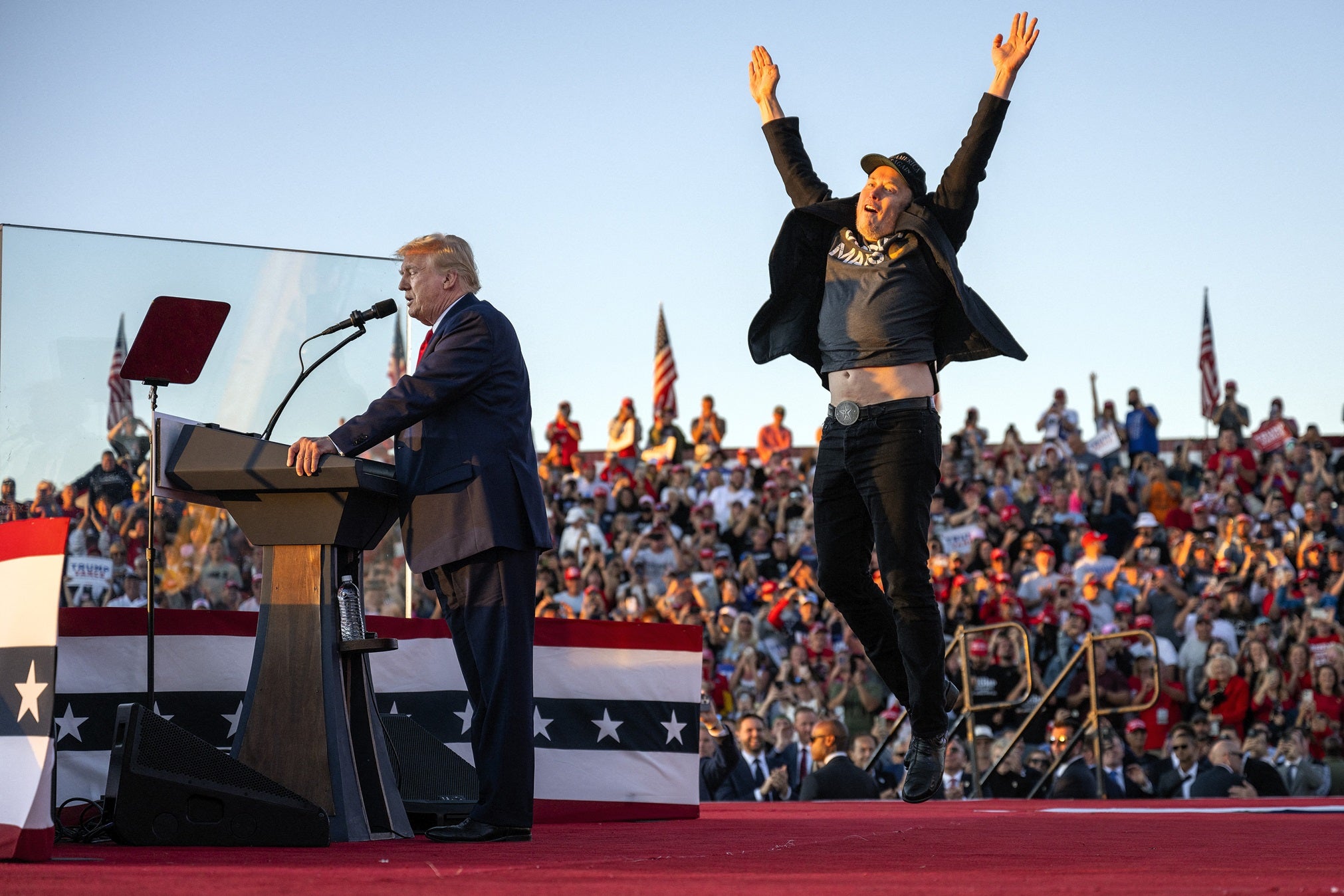Elon Musk appears to have tweaked X’s algorithm to promote Trump, study claims
Sudden boost in views and engagement of billionaire’s posts coincided with endorsement

Elon Musk appears to have been artificially boosting his posts on X (formerly Twitter) since mid July in order to promote pro-Trump content, according to new research.
Analysis of the social media platform – which the tech billionaire acquired in 2022 – showed that Mr Musk’s posts saw a sudden increase in views and engagement shortly after he began endorsing Donald Trump for US president.
Many of these posts on X were either supporting the Republican candidate or undermining the campaign of his Democratic rival Kamala Harris, with the increase in views and retweets occurring at a much higher rate in comparison with other prominent political accounts on the app.
“This raises suspicions as to whether Musk has tweaked the platform’s algorithm to increase the reach of his posts in advance of the US presidential election,” wrote Timothy Graham, an associate professor in digital media at Queensland University of Technology and Mark Andrejevic, a professor in media at Monash University, who undertook the research.
Engagement on Mr Musk’s posts more than doubled following this suspected algorithm tweak, which the researchers say occurred after the X owner first endorsed Mr Trump after he was targeted by an assassination attempt.
The “sudden boost” coincides with the tech billionaire’s endorsement of Donald Trump for US president, which took place shortly after the Republican candidate was targeted by an assassination attempt.
“The analysis of Elon Musk’s engagement metrics on X (formerly Twitter) reveals that Musk’s account exhibited distinct and elevated engagement patterns compared to other accounts, particularly around a key structural change on 13 July, 2024,” the researchers wrote in a study detailing their analysis.
“These findings underscore a distinct pattern that may indicate an algorithmic shift that disproportionately favoured Musk’s account, contributing to a considerable engagement advantage.”
The researchers studied more than 56,000 posts on X from a selection of Democrat-leaning and Republican-leaning accounts in order to provide a basis of comparison for Mr Musk’s political posts.
Examining three engagement metrics – view counts, retweets and favourites – the study found that the potential of algorithmic bias “favoured [his] content in terms of visibility or recommendation” from 13 July onwards.
After this date, view counts of the billionaire’s posts shot up by 138 per cent, while retweets rose by 238 per cent, suggesting that he benefited from “an enhanced increase in visibility post-change relative to other accounts”.
The results raise important questions about the potential impact of algorithmic adjustments on public discourse and the ‘neutrality’ of social media platforms, according to the researchers.
“This outcome has broader implications for understanding how platform algorithms may shape public discourse by influencing which voices and content receive heightened visibility and interaction,” the study concluded.
The study detailing the results, titled ‘A computational analysis of potential algorithmic bias on platform X during the 2024 US election’, is currently available in preprint form.
Join our commenting forum
Join thought-provoking conversations, follow other Independent readers and see their replies
Comments
Bookmark popover
Removed from bookmarks